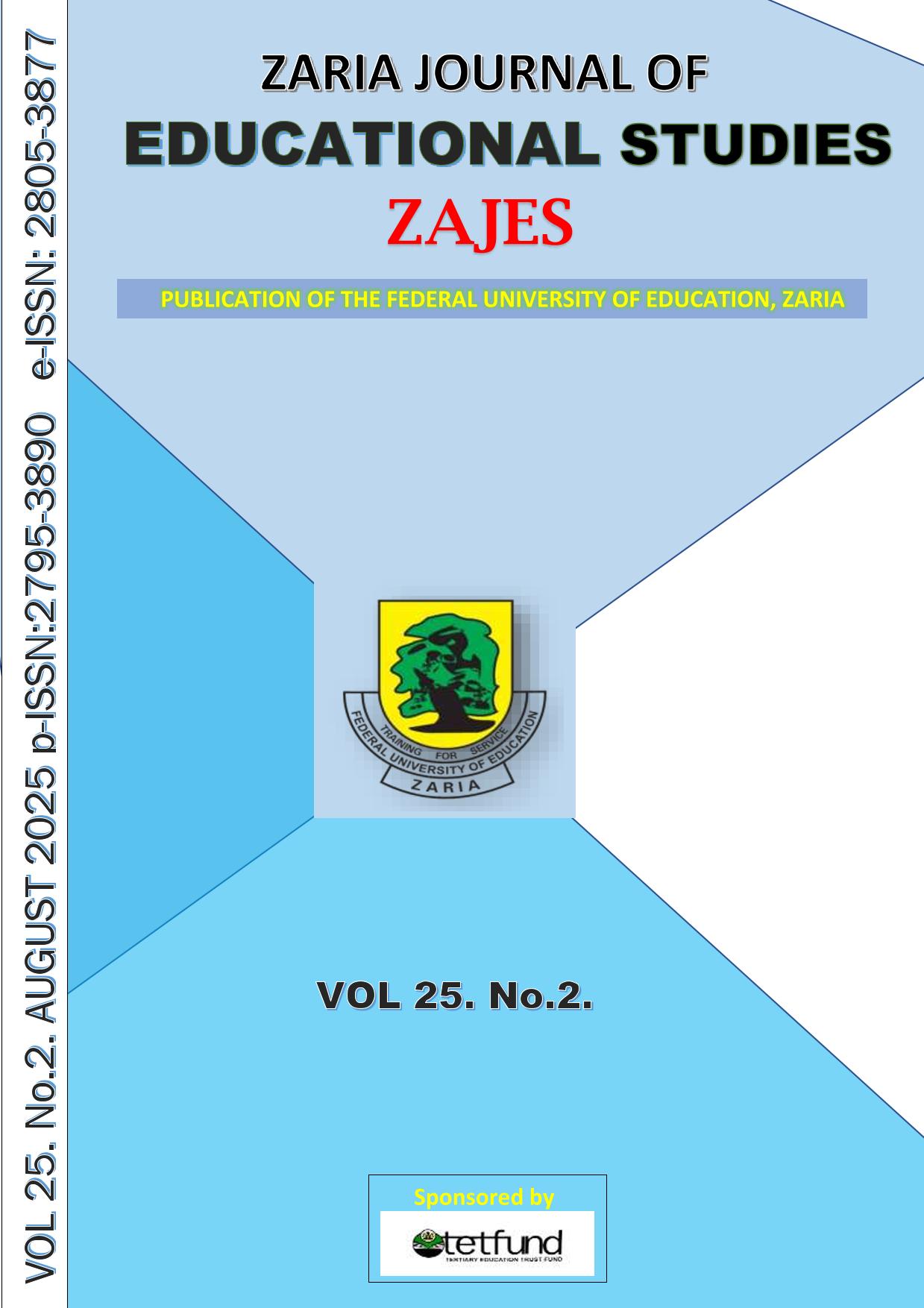PERCEIVED DYNAMICS OF ARTIFICIAL INTELLIGENCE IN THE GENERATION OF CALQUING IN LANGUAGE PEDAGOGY: A STUDY OF SELECTED LANGUAGE EDUCATORS IN FEDERAL UNIVERSITY OF EDUCATION, ZARIA
Keywords:
Artificial Intelligence, Morphology, CalquingAbstract
The advent of Artificial Intelligence (AI) has fascinated transformation in various disciplines, linguistics inclusive. This study investigates the perceived dynamics of AI in generating calquing in language pedagogy. In this regard, this paper attempts to examine the significance of AI in language teaching and learning putting its challenges and prospects into consideration. The author gathered the relevant data through both primary (questionnaire) and secondary (books) sources. The findings of the research reveal that the adoption of AI technology in morphological processes has immensely paved way for facilitation, manipulation, creativity, ‘connectivism’, convenience, ‘complementalization’, comprehensiveness, linguistic assimilations and prejudices in the advancement of language teaching and learning. Through a detailed analysis of AI-driven linguistic tools and their impact on language evolution, this article demonstrates that AI is not just a tool for linguistic analysis but a catalyst for innovation in language formation. The implications of these findings are discussed in relation to the fast spreading waves of morphological theory and AI’s future in linguistic evolution. In spite of its dynamic roles, the orientation about the usefulness of AI has not gained sufficient attention in the Nigerian educational system as obtainable in advanced nations. Ergo, the conclusion reflects that the adoption of AI in language teaching and learning in Nigeria will facilitate creativity, consistence, comprehensiveness among others for both teachers and the concerned learners in their quest for broader and deeper perspectives in generating morphological calques.

